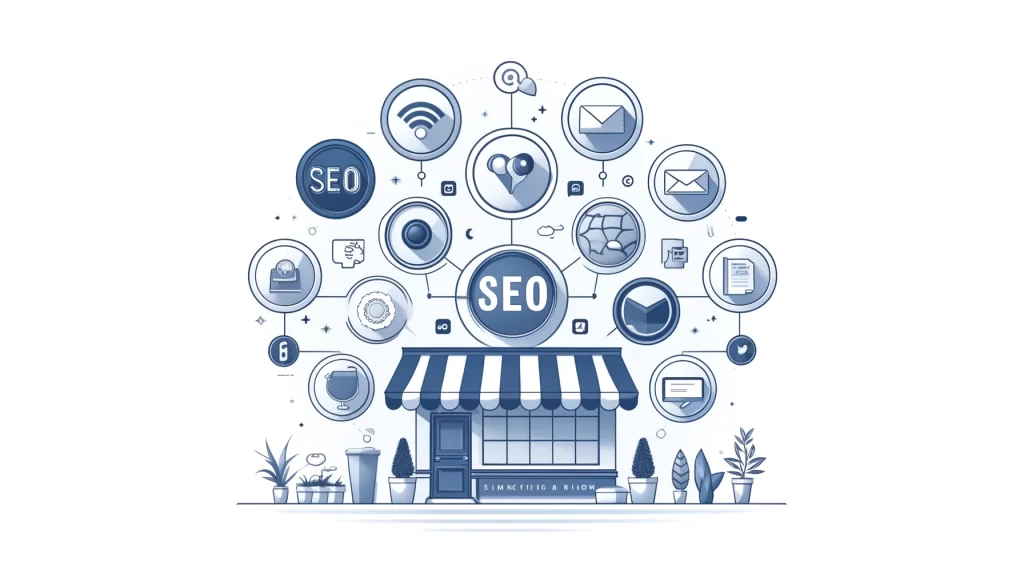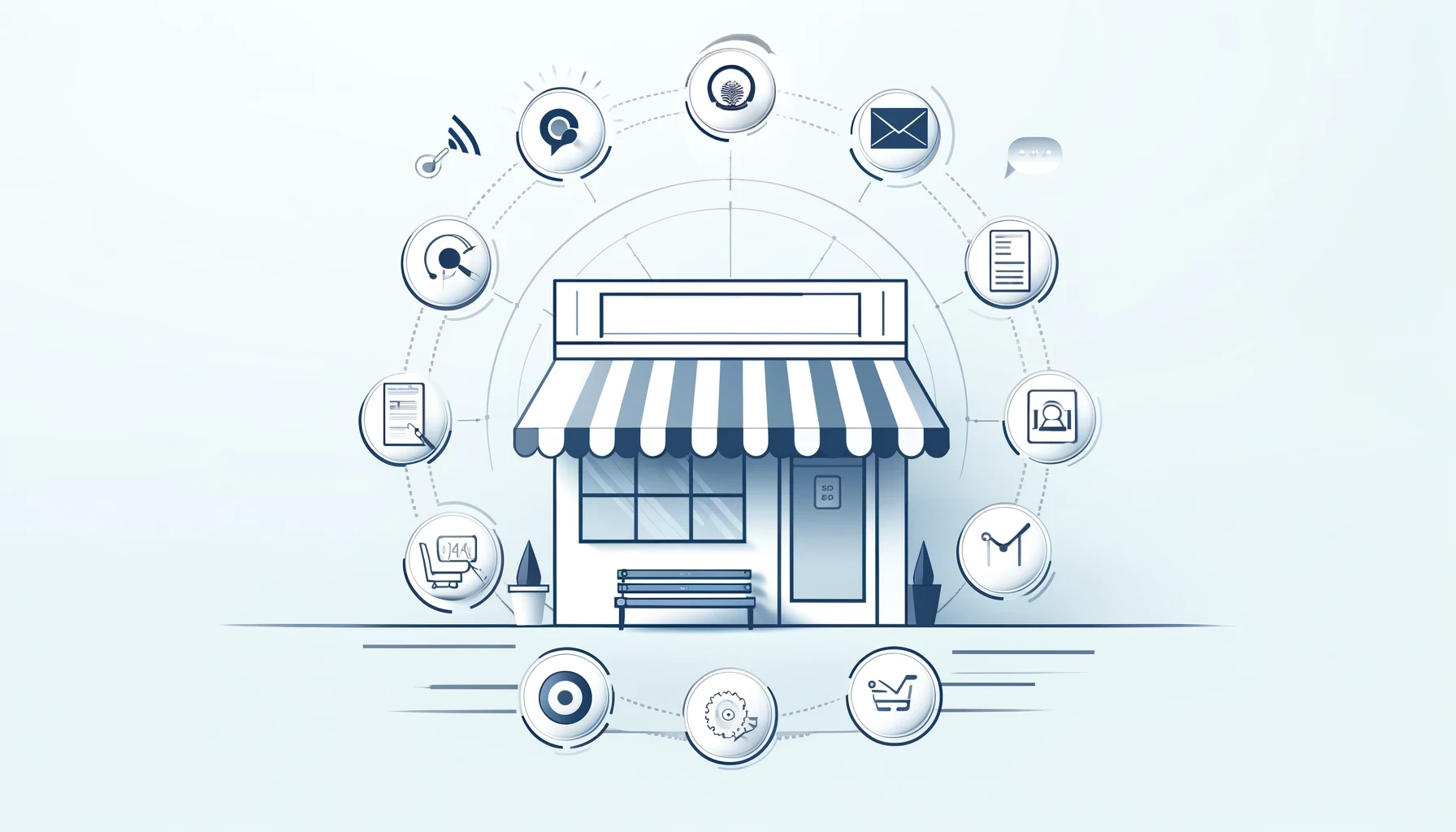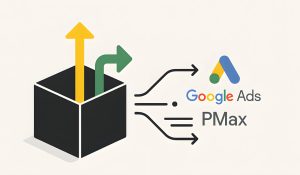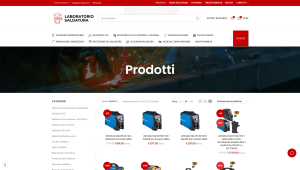Running a small business is no easy feat. You’re constantly juggling different roles, wearing multiple hats, and trying to make your mark in a sea of competitors. One of the biggest challenges nowadays is getting your brand noticed and reaching the right customers. That’s where digital marketing comes in – a game-changer for small businesses like yours.
Think about it: how often do you whip out your smartphone to search for a local business, check out their website, or browse their social media pages? Chances are, you do it more often than you realize. And you’re not alone – billions of people worldwide are glued to their digital devices, consuming content and making purchasing decisions based on what they see online.
Digital marketing allows you to meet your customers where they’re already spending their time – the internet. By leveraging tools like search engines, social media, email, and websites, you can connect with your target audience in a way that traditional advertising methods simply can’t match. And the best part? It’s cost-effective, measurable, and levels the playing field, giving you the opportunity to compete with even the biggest players in your industry.
In this comprehensive guide, we’ll dive deep into the world of digital marketing and explore strategies that can supercharge your small business’s growth. From building a strong online presence to engaging with customers in real-time, we’ll cover it all. And, most importantly, we’ll show you how to make the most of your marketing dollars by optimizing your campaigns and analyzing data-driven insights.
Digital marketing is the practice of promoting products or services using digital channels such as search engines, social media, email, and websites. Unlike traditional marketing methods that rely on print, radio, or television, digital marketing leverages the power of the internet to reach potential customers where they spend much of their time—online. This form of marketing includes various strategies and tools designed to attract, engage, and convert leads into customers efficiently and cost-effectively.
For small business owners, navigating the competitive market can be challenging. Traditional advertising methods, while still valuable, often lack the reach and precision needed to target the right audience. Digital marketing offers a transformative solution. It enables small businesses to:
- Reach a broader audience beyond their local area.
- Engage with customers in real-time and build meaningful relationships.
- Analyze and optimize marketing campaigns based on measurable data.
- Compete with larger businesses by leveling the playing field with cost-effective strategies.
The digital landscape offers a unique opportunity to tap into a global market, providing access to customers who may have never discovered your business through traditional means. With consumers increasingly relying on online research before making purchasing decisions, having a strong digital presence is no longer optional but essential.
The Landscape of Small Businesses
Small businesses are typically defined by their size in terms of employee count, annual revenue and include a wide variety of companies, from local retailers and restaurants to tech startups and professional service providers.
Challenges Faced by Small Businesses
Running a small business comes with its unique set of challenges:
- Limited Budget: Small businesses often have tight budgets, making it difficult to invest in large-scale marketing campaigns.
- Resource Constraints: With fewer employees, small businesses might lack the specialized skills needed for comprehensive marketing efforts.
- Brand Awareness: Competing against well-established brands with extensive marketing resources can be daunting.
- Customer Acquisition and Retention: Finding new customers and retaining existing ones can be particularly challenging without the right strategies.
- Technology Adoption: Keeping up with the latest marketing technologies and tools can be overwhelming.
The Competitive Advantage of Digital Marketing for Small Businesses
Digital marketing provides small businesses with powerful tools to overcome these challenges:
- Cost-Effectiveness: Digital marketing is generally more affordable than traditional marketing. With options like social media advertising and email marketing, small businesses can reach large audiences without breaking the bank.
- Targeted Marketing: Digital platforms allow businesses to target specific demographics, interests, and behaviors, ensuring that marketing efforts reach the most relevant audience.
- Real-Time Interaction: Digital marketing facilitates instant communication with customers, fostering stronger relationships and better customer service.
- Data-Driven Decisions: Analytics and reporting tools provide insights into customer behavior and campaign performance, enabling businesses to make informed decisions and optimize their strategies.
- Enhanced Reach: An online presence allows small businesses to reach potential customers beyond their local area, tapping into regional, national, or even global markets.
By leveraging digital marketing, small businesses can effectively compete with larger companies, build a loyal customer base, and drive sustainable growth. In the following sections, we will delve into the specific benefits and strategies that digital marketing offers to small businesses.
Benefits of Digital Marketing for Small Businesses
Cost-Effectiveness
Comparison with Traditional Marketing Methods
- Traditional marketing methods such as print ads, TV commercials, and billboards can be prohibitively expensive for small businesses. These methods also lack the precision to target specific audiences, leading to higher costs with less effective results.
- Digital marketing, on the other hand, offers affordable alternatives like social media advertising, email marketing, and content marketing. These methods not only cost less but also allow for targeted campaigns that reach the right audience.
Budget-Friendly Digital Marketing Tools and Strategies
- Tools like Google Analytics, MailChimp, and Hootsuite provide cost-effective solutions for managing and analyzing marketing campaigns. These tools help small businesses maximize their marketing budgets by offering insights and automation options.
- Strategies such as SEO, content marketing, and social media marketing require minimal financial investment but can yield significant returns by improving online visibility and engagement.
Enhanced Targeting and Personalization
Using Data Analytics for Targeted Marketing
- Digital marketing allows businesses to collect and analyze data on customer behavior and preferences. This data can be used to create highly targeted marketing campaigns that reach specific segments of the audience.
- Platforms like Facebook Ads and Google Ads enable precise targeting based on demographics, interests, and online behavior, ensuring that marketing messages are delivered to the most relevant audience.
Personalization Strategies to Engage Customers
- Personalization techniques such as customized emails, personalized product recommendations, and tailored content can significantly enhance customer engagement.
- Tools like CRM systems and marketing automation software allow businesses to deliver personalized experiences at scale, fostering stronger customer relationships and loyalty.
Improved Customer Engagement
Social Media Interactions
- Social media platforms provide an excellent opportunity for small businesses to engage with customers in real time. By actively participating in conversations, responding to comments, and sharing valuable content, businesses can build a community of loyal followers.
- Running contests, polls, and interactive content on social media can boost engagement and encourage user-generated content, which can further enhance brand visibility and credibility.
Email Marketing and Direct Communication
- Email marketing remains one of the most effective channels for direct communication with customers. By building and maintaining an email list, small businesses can keep their audience informed about new products, special offers, and company updates.
- Personalized email campaigns that address the specific needs and interests of recipients can drive higher open and click-through rates, leading to increased sales and customer retention.
Measurable Results and Analytics
Importance of Tracking Marketing Efforts
- One of the key advantages of digital marketing is the ability to track and measure the performance of campaigns in real time. Metrics such as website traffic, conversion rates, and social media engagement provide valuable insights into what works and what doesn’t.
- Tracking tools help businesses understand the return on investment (ROI) of their marketing efforts, enabling them to allocate resources more effectively and make data-driven decisions.
Tools and Metrics for Measuring Success
- Tools like Google Analytics, HubSpot, and SEMrush offer comprehensive analytics and reporting features that help businesses monitor their digital marketing performance.
- Key metrics to track include website traffic, bounce rate, conversion rate, click-through rate (CTR), and customer acquisition cost (CAC). These metrics provide a clear picture of the effectiveness of marketing strategies and areas for improvement.
Greater Reach and Brand Awareness
Expanding Market Reach Through Online Presence
- An effective digital marketing strategy can significantly extend the reach of a small business beyond its local area. With a well-optimized website and active social media presence, businesses can attract customers from different regions or even countries.
- Online marketplaces, search engines, and social media platforms offer opportunities to connect with a global audience, opening up new markets and revenue streams.
Building Brand Awareness and Trust
- Consistent and strategic digital marketing efforts help build brand awareness and establish credibility. By regularly sharing valuable content, engaging with the audience, and showcasing customer testimonials, businesses can create a strong brand presence online.
- Building trust with the audience through transparent communication and high-quality content can lead to long-term customer relationships and loyalty.

Key Digital Marketing Strategies for Small Businesses
Search Engine Optimization
SEO is crucial for improving the visibility of a business’s website in search engine results. Higher rankings on search engines like Google can drive organic traffic to the website, leading to increased brand awareness and customer acquisition. For small businesses, local SEO is particularly important as it helps attract nearby customers searching for products or services within a specific geographical area.
Basic SEO practices for small businesses include conducting keyword research to identify relevant search terms that potential customers might use, optimizing website content, meta descriptions, and tags with targeted keywords, building high-quality backlinks from reputable websites to improve domain authority, and ensuring the website is mobile-friendly and has fast loading times.
Content Marketing
Content Marketing involves creating and sharing informative, engaging, and relevant content that addresses the needs and interests of the target audience. High-quality content can attract and retain customers by providing value and establishing the business as an authority in its industry. Types of content include blog posts, videos, infographics, ebooks, and case studies.
Content can be distributed through various channels, including the company’s website, social media platforms, email newsletters, and third-party websites. Leveraging multiple channels ensures that the content reaches a wider audience and drives more traffic to the business’s website.
Social Media Marketing
Social Media Marketing involves choosing the right platforms where your target audience is active and engaging with them through consistent posting and interactions. Not all social media platforms are equally effective for every business, so it’s important to identify where your target audience spends their time. For example, Facebook is great for a broad audience and detailed targeting options, Instagram is ideal for visual content and engaging younger audiences, LinkedIn is best for B2B marketing and professional services, and Twitter is useful for real-time updates and customer engagement. Focus your efforts on the platforms that align with your business goals and audience preferences.
Engaging with the audience is crucial. Post regularly and consistently to keep your audience engaged, using a mix of content types such as images, videos, stories, and live streams to capture attention. Engage with your audience by responding to comments, messages, and mentions promptly. Use social media analytics tools to track engagement metrics and adjust your strategy accordingly.
Email Marketing
Email Marketing involves building an email list and running effective email campaigns. Start by collecting email addresses through your website, social media, and in-store sign-ups, offering incentives such as discounts, free resources, or exclusive content to encourage sign-ups. Ensure that your sign-up process complies with data protection regulations like GDPR.
For effective email campaigns, segment your email list based on demographics, past purchases, and engagement levels to send targeted messages. Personalize emails with the recipient’s name and tailored content to increase open and click-through rates. Use compelling subject lines and clear calls to action to drive engagement. Monitor email campaign performance using metrics like open rate, click-through rate, and conversion rate to optimize future campaigns.
Pay-Per-Click (PPC) Advertising
Pay-Per-Click (PPC) Advertising allows businesses to place ads on search engines, social media platforms, and other websites, paying a fee each time the ad is clicked. Google Ads and Facebook Ads are two of the most popular PPC platforms, offering extensive targeting options and measurable results. PPC provides immediate visibility and can drive traffic to your website quickly. It allows for precise targeting based on keywords, demographics, location, and interests. Businesses can set and control their budgets, making PPC accessible even with limited funds. PPC campaigns can be tracked and optimized in real-time, ensuring efficient use of marketing spend.
PPC Advertising benefits small businesses significantly. It provides immediate visibility and can drive traffic quickly. Precise targeting options help reach the right audience effectively. Businesses can control their budgets, making PPC accessible even with limited funds. Real-time tracking and optimization ensure efficient use of marketing spend.
Influencer Marketing
Influencer Marketing involves collaborating with individuals who have a large and engaged following on social media to promote your products or services. Influencers can help promote your offerings to their audience through sponsored posts, reviews, and collaborations. To leverage influencer reach effectively, choose influencers whose followers match your target audience and whose values align with your brand. Set clear objectives and expectations for the partnership to ensure mutual benefits. Track the performance of influencer campaigns through metrics like engagement, reach, and conversion rates.
Overcoming Common Challenges
Limited Budget and Resources
Focus on low-cost strategies like organic social media marketing and content marketing, which require more time and creativity than financial investment. Utilize free tools like Google My Business for local SEO and MailChimp for email marketing. Leverage free versions of digital marketing tools like Google Analytics, Hootsuite, and Canva.
Lack of Expertise
Take advantage of online courses, webinars, and tutorials on platforms like Coursera, Udemy, and HubSpot Academy to build digital marketing skills. Join local business groups or industry associations for training and networking opportunities. Consider hiring freelancers or digital marketing agencies for specialized tasks through platforms like Upwork and Fiverr.
Keeping Up with Trends
Follow industry blogs, podcasts, and news sites to stay updated on the latest digital marketing trends and best practices. Subscribe to newsletters from reputable sources. Regularly review and analyse marketing campaigns to identify areas for improvement. Be open to experimenting with new strategies and tools to stay ahead of the competition and encourage continuous learning and adaptation.
Conclusion
Digital marketing is essential for small businesses to compete effectively, reach a wider audience, and build lasting customer relationships. By leveraging digital marketing strategies, small businesses can overcome common challenges and achieve sustainable growth.
Embrace digital marketing as a vital part of your overall business strategy. Start small and scale your efforts as you gain confidence and see results.
The digital landscape offers endless opportunities for small businesses willing to innovate and adapt. With the right tools and strategies, digital marketing can drive significant success and growth for your business. Stay ahead of the curve, continuously learn, and don’t hesitate to experiment with new digital marketing approaches to give your small business a competitive edge.
Let's talk
If you’re a small business owner looking to harness the power of digital marketing but need guidance in setting your strategy, we encourage you to reach out to us at Digital Connect.
With our expertise, you’ll be well-equipped to embrace digital marketing as a vital part of your overall business strategy and scale your efforts as you gain confidence and see results.







